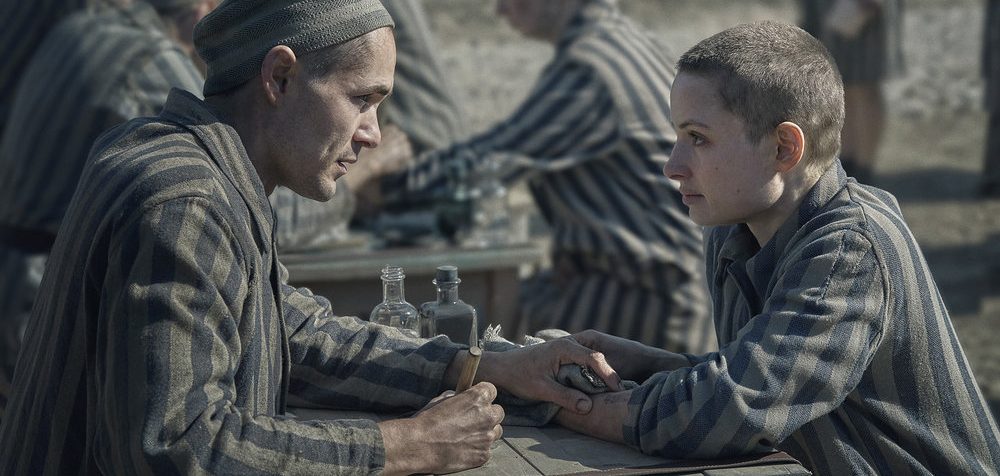In Peacock’s ‘The Tattooist of Auschwitz,’ Lali and Gita fall in love with each other in a place where they have no idea whether the next sunrise will be their last. Thrown into the concentration camp in Auschwitz, they find an anchor in one another, pushing them to survive no matter how dire the circumstances might seem. It is their love for each other that helps them survive the most atrocious thing that they’d ever experienced in their lives. Eventually they received their happy ending, and now their son is helping tell their story.
Where is Gary Sokolov Now?
Gita and Lali Sokolov’s only child, Gary Sokolov, lives in Melbourne and works as a consultant for a health insurance advisory company known as Choosewell. He is now in his 60s and is the father of three daughters.
Born in 1961, Gary was called a “miracle child” because of the unexpected nature of his arrival. Following the horrors she’d been through at Auschwitz-Birkenau, Gita was told that her body had been rendered incapable of bearing a child. This was after she and Lali had left behind Europe for good and had moved to Australia. They had been trying to have a child for a long time, but when their prayers weren’t answered, they accepted their fate. The doctor had told them in clear terms that they could never have a biological child of their own, which had led the couple to explore the possibility of adoption. They were well into the process of adopting a child when Gita fell sick and was later revealed to have been pregnant.
Having a child together brought immense happiness to the couple, for whom their son was the legacy they would leave behind, someone who could carry not only their name but also their stories once they were gone. While Gita remained reserved about her experiences at the camp and rarely talked about it with anyone, Lali was more vocal about his time. Gary revealed that he knew almost everything about his father’s story, having heard bits and pieces of it over the years as Lali and other people who had also been through the horrors of the Holocaust shared their stories with each other.
Lali, who raised his son in the Jewish faith, not only educated Gary in the ways and traditions of their religion but made it a point for his son to know about his and Gita’s experiences. When Gary was a teenager, the BBC program called ‘The World at War’ was released, and Lali and Gita had Gary watch it. Gary admitted that while he was familiar with his parents’ stories, it was after watching the documentary and actually seeing the things unfold on the screen that gave him a true measure of the things that his parents and millions of other people had been through.
Despite his familiarity with the subject, it is still difficult for Gary to discuss the stories of his parents in detail. He revealed that he tried to visit Auschwitz three times, but every single time, he found himself unable to cross the border to Poland. Still, he was adamant about honoring his parents’ legacy, and it was through a friend that he came in touch with Heather Morris, who eventually wrote ‘The Tattooist of Auschwitz’ based on Lali and Gita Sokolov’s story.
Morris interviewed Lali over numerous meetings, and Gary sat in on a few of them. However, it all became a bit too much for him, and he decided to sit them out. Another reason that he decided not to be a part of their sessions was that he believed that his presence would hinder his father’s ability to express himself fully. He said that with him there, Lali “felt that he had to be tough, so the sessions flowed better when [Gary] was not there.”
Morris’ book became an international bestseller and while Gary praised Morris in the beginning, differences arose between them a while after the book’s publication. Morris revealed that Gary and his wife had issues with some parts of the story and other problems as well. She added that Gary backed away from the book in the later phase of publication, even though he had been supportive of it in the beginning. Gary pointed out that his father’s name had been misspelled as “Lale” in the book, among other historical inaccuracies, which were also later pointed out by several other sources.
Whatever form Morris’ book may have taken, it did the intended job. It brought Lali and Gita’s story in front of the whole world and paved the way for a screen adaptation, something that had been Gary’s life-long dream. Moved by Harvey Keitel’s portrayal of Lali, Gary revealed that the making of the show was an “emotionally draining” process, but he was glad that it was made because it spreads the message of hope and perseverance, something that his father always advocated and something that the world is in desperate need of right now.
Read More: The Tattooist of Auschwitz: Is Dr. Schumann Based on a Real Nazi Doctor?

